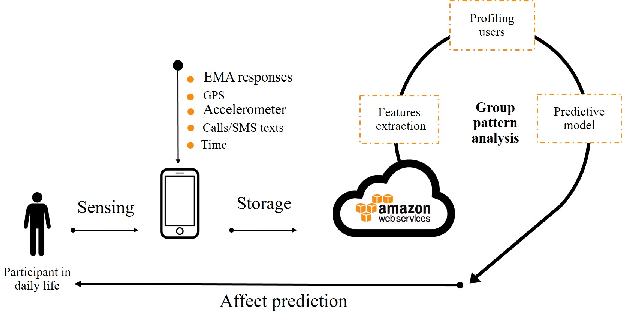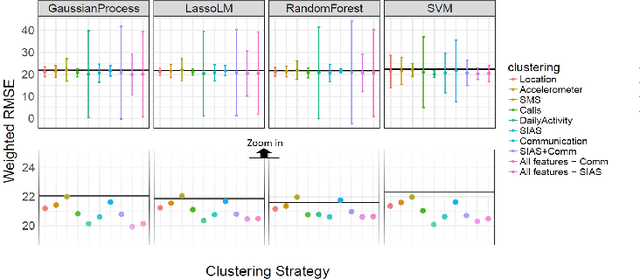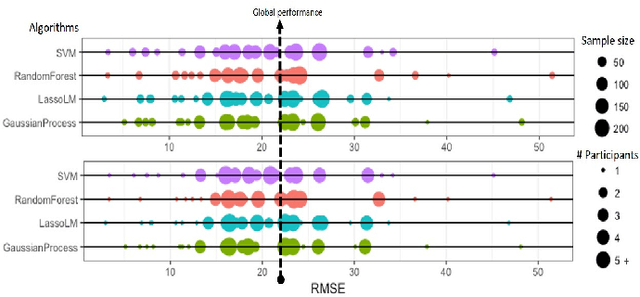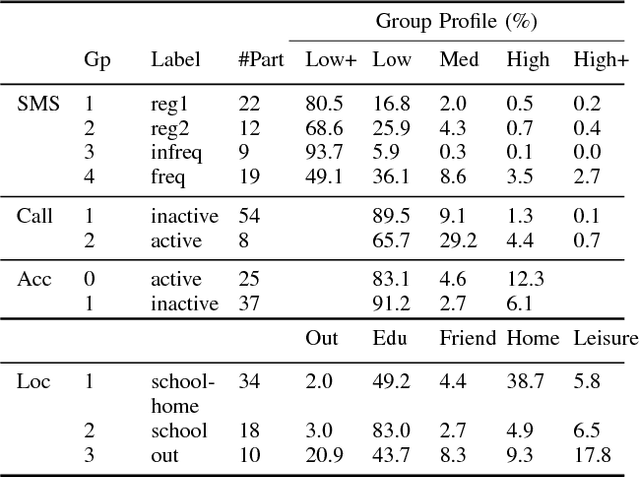Get our free extension to see links to code for papers anywhere online!Free add-on: code for papers everywhere!Free add-on: See code for papers anywhere!
Alexander Daros
Cluster-based Approach to Improve Affect Recognition from Passively Sensed Data
Jan 31, 2018Authors:Mawulolo K. Ameko, Lihua Cai, Mehdi Boukhechba, Alexander Daros, Philip I. Chow, Bethany A. Teachman, Matthew S. Gerber, Laura E. Barnes
Figures and Tables:







Abstract:Negative affect is a proxy for mental health in adults. By being able to predict participants' negative affect states unobtrusively, researchers and clinicians will be better positioned to deliver targeted, just-in-time mental health interventions via mobile applications. This work attempts to personalize the passive recognition of negative affect states via group-based modeling of user behavior patterns captured from mobility, communication, and activity patterns. Results show that group models outperform generalized models in a dataset based on two weeks of users' daily lives.
* BHI2018
Via
 Add to Chrome
Add to Chrome Add to Firefox
Add to Firefox Add to Edge
Add to Edge